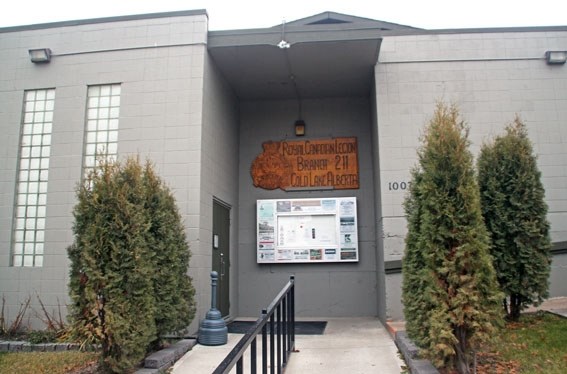Optimism and concern surround the Canadian government's plan to invest over $6 billion into restoring access to services and financial assistance for veterans.
Officials with the Royal Canadian Legion Dominion Command have held back their enthusiasm over the large commitment to funding increases for veterans, worried the ensuing federal government deficit might impact the ability to help the military in future years.
In Cold Lake, legion members are encouraged by the funding promises made by the federal government in the 2016 budget, feeling that any added dollars are going to go a long way.
“It is nice to see the government actually stepping up and helping out,” said Todd Rorke, President of the Royal Canadian Legion Branch 211.
In order to ensure Canada's veterans have access to the services and programs they need, the government will be funneling millions of dollars into the reopening and staffing of nine Veteran Affairs offices across the country. The funding will also cover the hiring of additional staff members for other offices to reduce the client-to-case manager ratio to no more than 25:1.
“One of the worst things the (government) did was close down all of those Veterans Affairs offices because then veterans had to travel (extremely) far just to get some face-to-face time,” said Rorke. “Most of the time you can't do (everything) by the mail; you need to sit down with somebody and actually talk over your issues.”
The added staff at Veterans Affairs offices across the country is going to have more programs and initiatives to offer thanks to a series of promises made in the 2016 budget. Increases to the monetary disability award, the earnings loss benefit and other financial assistance programs have been committed to and are estimated to pay out $5.6 billion over the next six years, starting in 2015-'16.
Budget 2016 will also see the Community War Memorial Program combined with the Commemorative Partnership Program to open up funding to build new community war memorials. “A lot of the smaller places just don't have that kind of money (for memorials), so veterans are travelling long distances just to get to a memorial for Remembrance Day,” said Rorke, who is in favour of seeing more memorials erected.
Although Rorke felt the funding was going to have an impact on veterans across the country, he wasn't too sure what the implications would be locally. The offices and services are currently working well with veterans throughout the Lakeland, helping them receive the support they need.
“Cold Lake is one of the communities that is not too bad off. The Veterans Affairs office here is willing to put out the extra effort for the Cold Lake area,” said Rorke. “The legion here is fairly strong and we have good ties with the Veterans Affairs in Edmonton. We do manage to get an awful lot done.”
While the funding will increase the support and financial assistance programs available for Canada's veterans, some people aren't as enthusiastic about where the money is being allocated.
Tom Eagles, Dominion President of the Royal Canadian Legion, questions the capability of the government to follow through on its earlier promise of replacing Canada's increasingly aging military equipment. He wonders whether the debt commitments made in 2016 are going to hinder the government in funding the desperate equipment upgrades and maintenance repairs needed in future years.
“Promises made during the federal election should be promises kept between elections and the Royal Canadian Legion will continue to advocate for our veterans to ensure they receive the care, compassion and the respect they deserve,” said Eagles.



